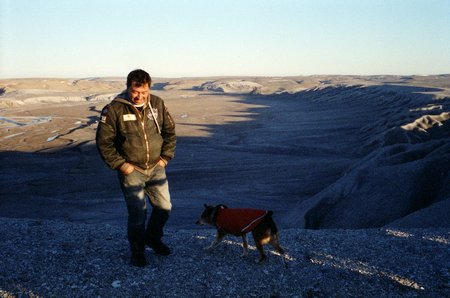From a media release:
SLAVES TO HABIT:Â New documentary examines our battle with bad habits and the secrets to conquering them
- Premieres THURSDAY, JANUARY 2, 2014 – 9:00 P.M. (9:30 P.M. NT) on CBC TV’s Doc Zone
Happy New Year! With the start of every new calendar year comes a fleet of well intentioned New Year’s resolutions – among them, losing weight, quitting smoking, getting more exercise.
On THURSDAY, JANUARY 2, 2014 at 9:00 p.m. (9:30 p.m. NT) CBC-TV’s Doc Zone premieres SLAVES TO HABIT, a new documentary that takes an in-depth look at bad habits, the behavior that surrounds them, and the startling new science on the interaction between brain chemistry, habit and self-control.
Just about everything we need to know about resisting temptation can be found in ‘The Marshmallow Test’, a famous experiment conducted by Walter Mischel, at Stanford University in the 1960s. In The Marshmallow Test, a researcher places a marshmallow in front of a pre-schooler and tells them that if they can wait about 15 minutes before eating it, they will get a second marshmallow. Over the course of the 15 minutes, we watch each child desperately try to resist the impulse to eat the marshmallow. The hilarious and fascinating results demonstrate the power of habit and willpower – who has it and who doesn’t.
SLAVES TO HABIT features some of the world’s foremost authorities on how our habits affect or control our lives including Pulitzer Prize winning New York Times Reporter Charles Duhigg, author of ‘The Power of Habit – Why We Do What We Do in Life and Business’. Duhigg takes us to the thrilling edge of scientific
discoveries that explain why habits exist and how they can be changed. Along the way we learn why some people struggle to change, despite years of trying, while others seem to remake themselves overnight According to Duhigg, a habit consists of three parts: “There’s a cue, which is like a trigger for an automatic
behaviour to start, and then a routine which is the behaviour itself, and then finally a reward. Most people focus on the behaviour and the routine – but it’s the cue and the reward that shapes how the habit functions.â€
SLAVES TO HABIT follows three individuals over a 6-week period as they struggle to break their bad habits – smoking, overeating and compulsive shopping. In the end, we understand that habits aren’t destiny and that by harnessing the new science on habit, we can transform our businesses, our communities, and our
lives.
SLAVES TO HABIT is written, directed and produced by the award-winning veteran filmmaker Andy Blicq (Faking the Grade, Conspiracy Rising, Information Overload, The Truth About Shoplifting, The Truth About Liars).










